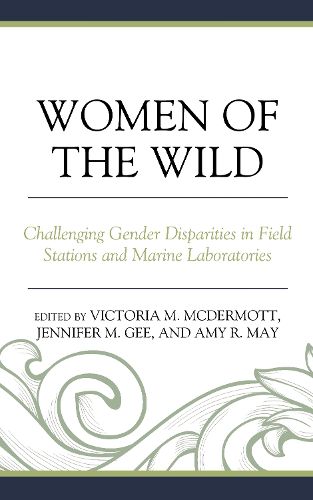Readings Newsletter
Become a Readings Member to make your shopping experience even easier.
Sign in or sign up for free!
You’re not far away from qualifying for FREE standard shipping within Australia
You’ve qualified for FREE standard shipping within Australia
The cart is loading…






Field stations and marine laboratories (FSMLs) are sentinels of Earth’s climate, providing scientists with the infrastructure to collect data in otherwise inaccessible areas of the globe. Many FSMLs were built around and continue to perpetuate male-dominated institutional ideologies, making it difficult for women, BIPOC, and those with intersecting identities to progress, succeed, and thrive. In a collaborative effort across field ecologists and communication scholars working with women navigating these spaces, this book’s priorities are to: 1) document the gender history of FSMLs; 2) provide a context for the current organizational culture and understand the current communication climate dynamics; 3) explore current barriers to leadership, success, and factors that contribute to positive communication climates in FSMLs, and 4) explore strategies, programs, and interventions for supporting women’s leadership roles, as well as, to develop best practices for policy, resource allocation, and field station design to better support and increase women’s leadership roles in FSMLs.
$9.00 standard shipping within Australia
FREE standard shipping within Australia for orders over $100.00
Express & International shipping calculated at checkout
Field stations and marine laboratories (FSMLs) are sentinels of Earth’s climate, providing scientists with the infrastructure to collect data in otherwise inaccessible areas of the globe. Many FSMLs were built around and continue to perpetuate male-dominated institutional ideologies, making it difficult for women, BIPOC, and those with intersecting identities to progress, succeed, and thrive. In a collaborative effort across field ecologists and communication scholars working with women navigating these spaces, this book’s priorities are to: 1) document the gender history of FSMLs; 2) provide a context for the current organizational culture and understand the current communication climate dynamics; 3) explore current barriers to leadership, success, and factors that contribute to positive communication climates in FSMLs, and 4) explore strategies, programs, and interventions for supporting women’s leadership roles, as well as, to develop best practices for policy, resource allocation, and field station design to better support and increase women’s leadership roles in FSMLs.